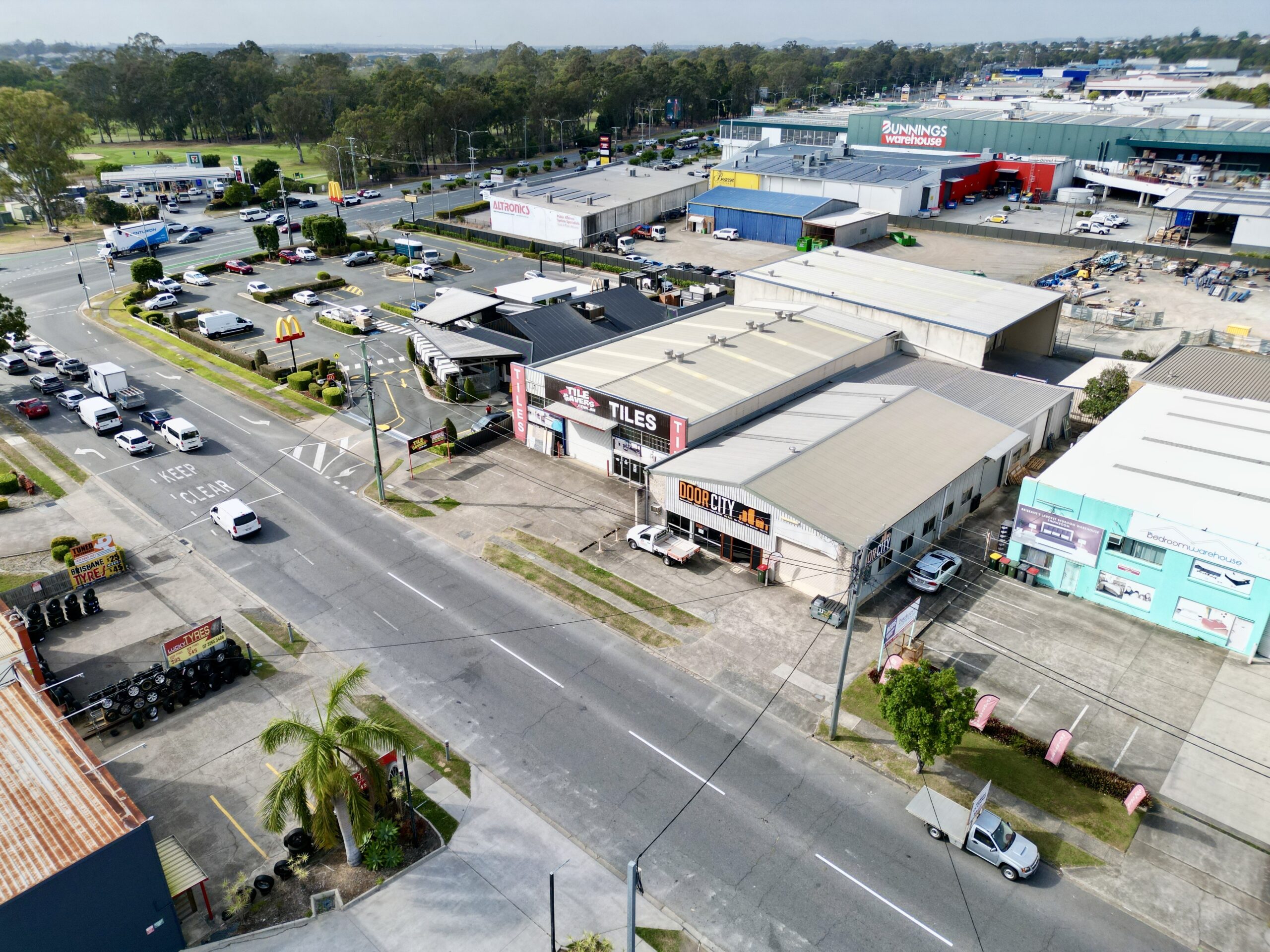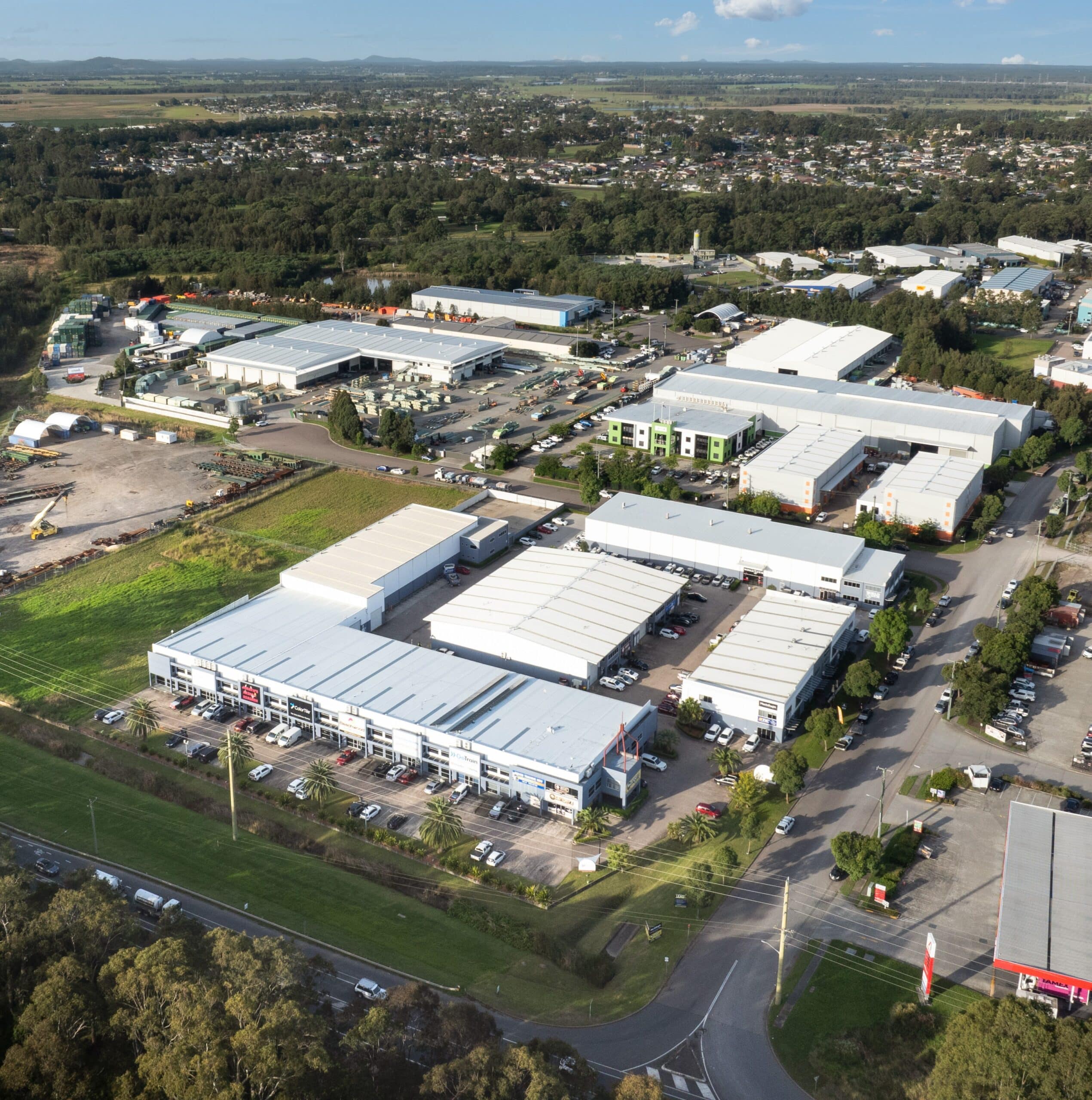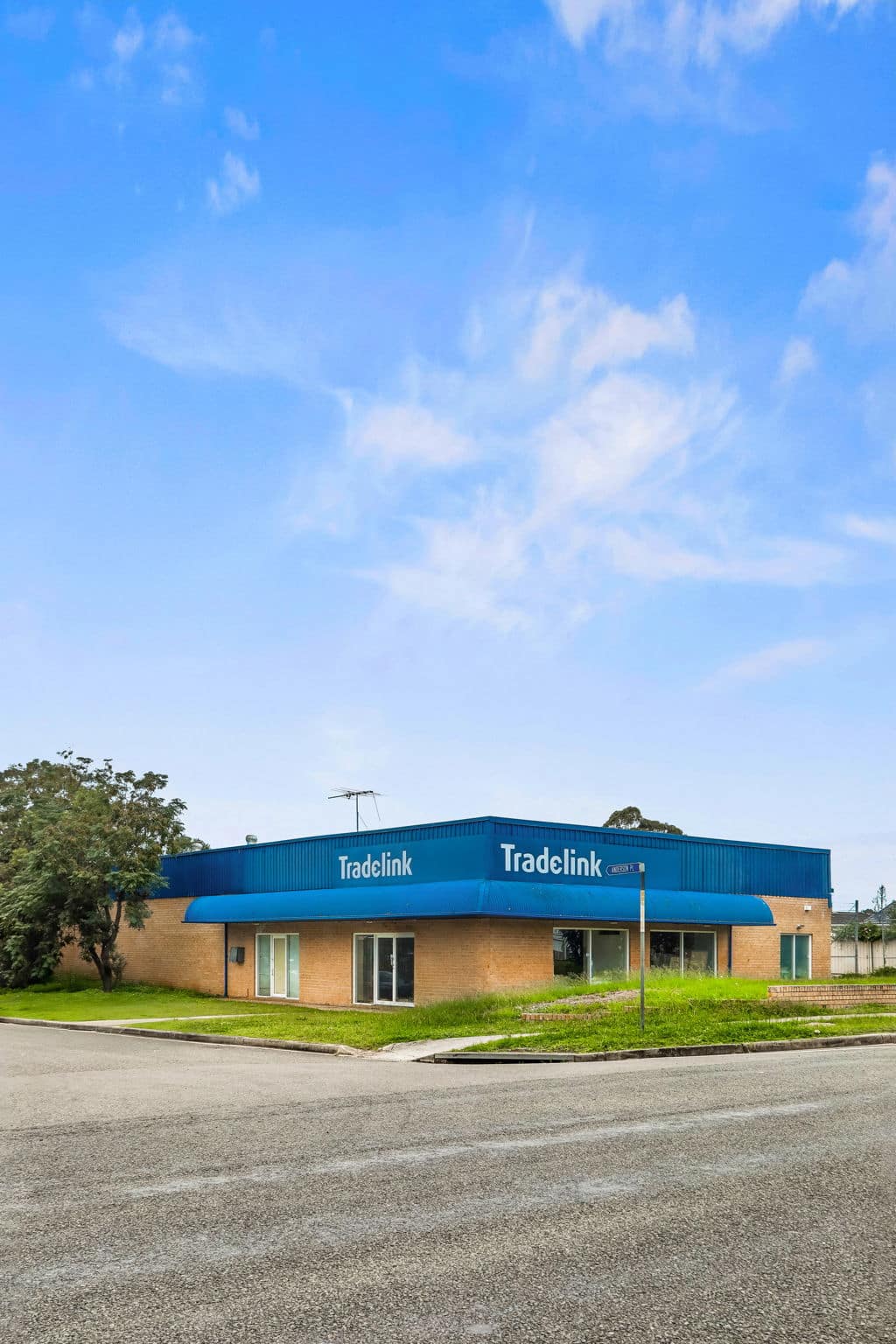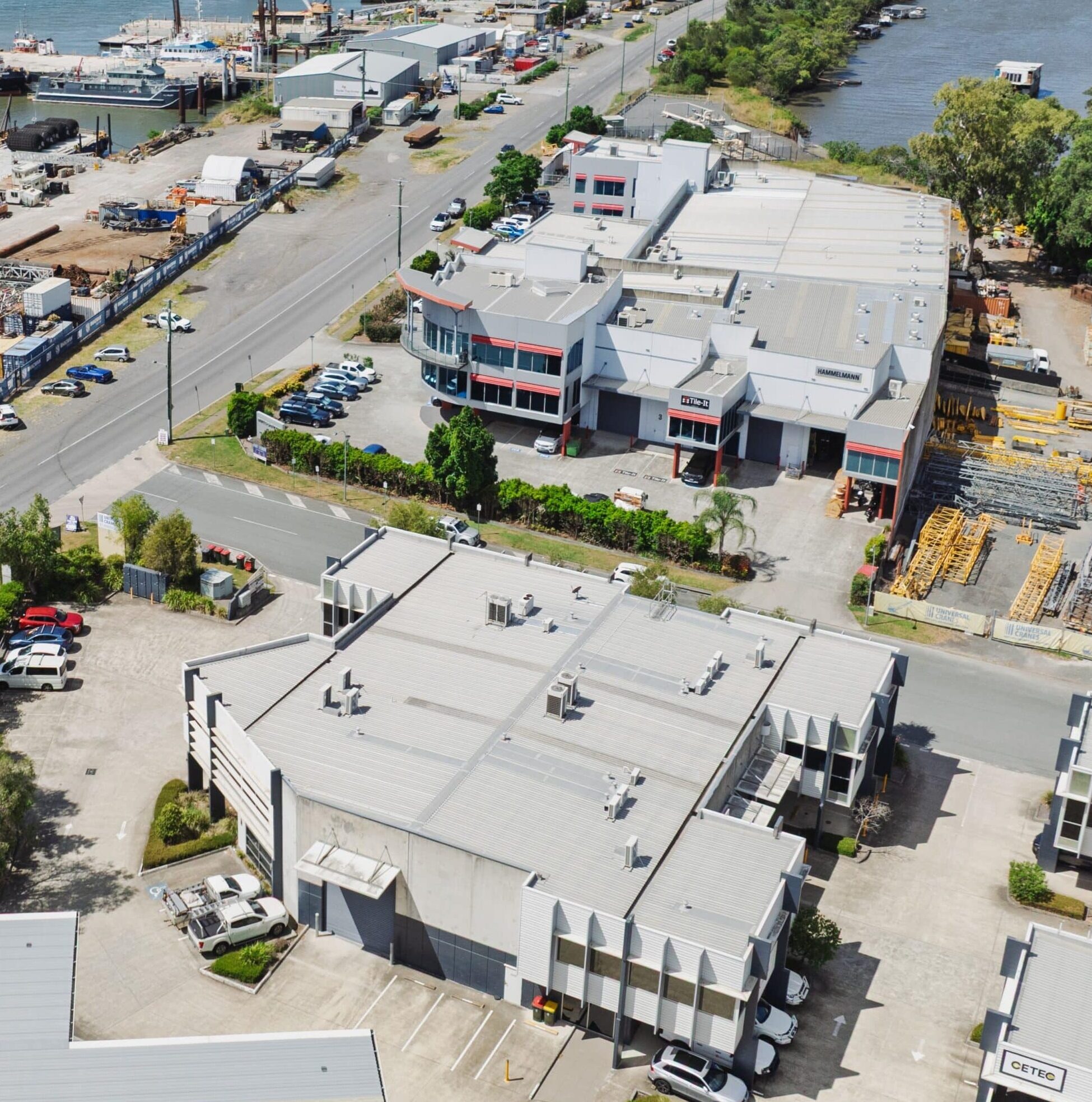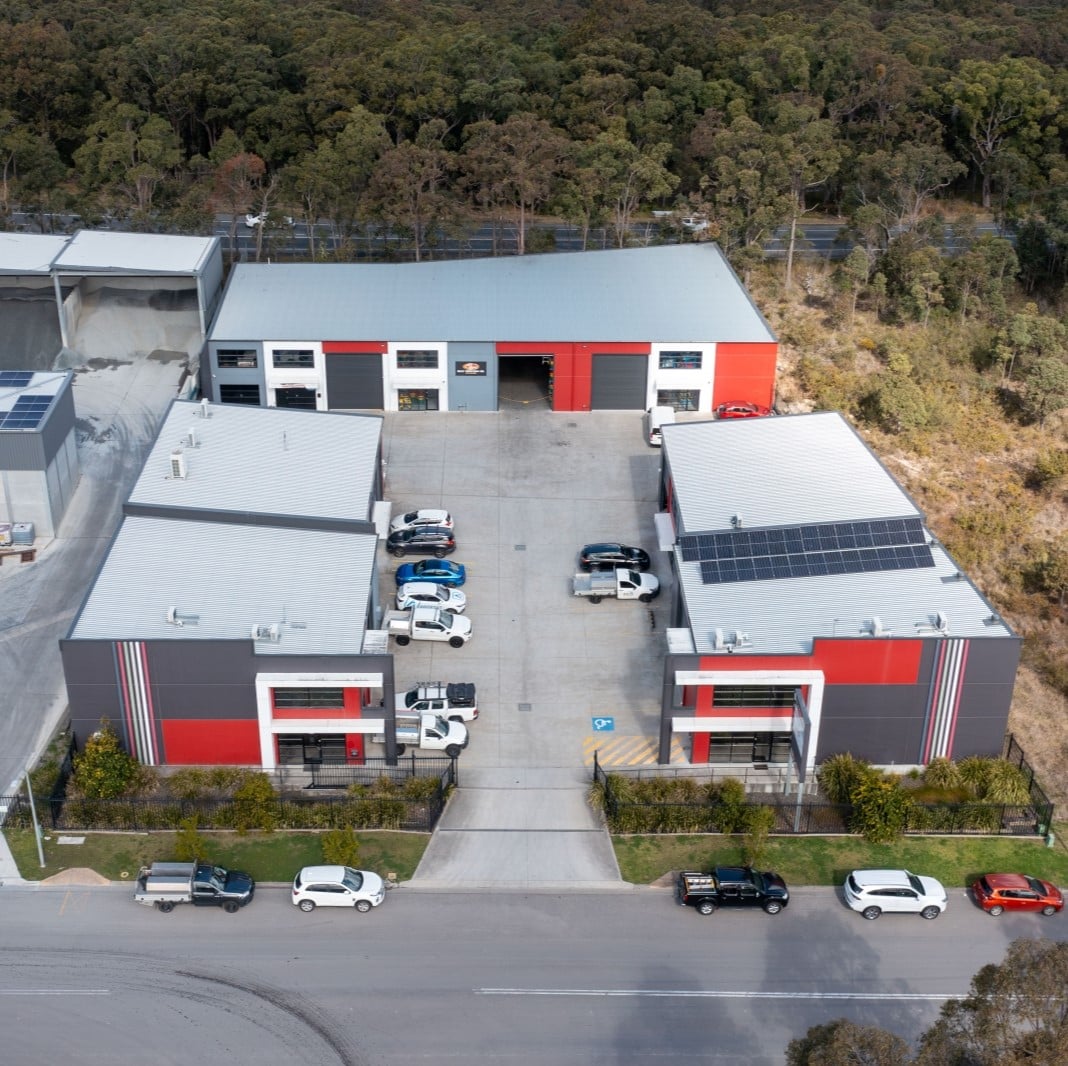Industrial Property Investment
With a combination of high rental yields, long-term tenant security and growing demand driven by e-commerce and supply chain needs, industrial real estate is gaining traction as one of the most popular asset classes for commercial investors in Australia. You need an experienced industrial property buyer’s agent like Costi Cohen — we help clients capitalise on this momentum with smarter site selection, sharper negotiations and access to opportunities others miss.
What are industrial properties?
Industrial properties are commercial real estate assets designed to support businesses involved in manufacturing, warehousing, logistics, distribution and other industrial operations. These properties include:
- Warehousing and distribution centres: Large spaces used for storing goods and handling logistics, often favoured by e-commerce companies like Amazon and retailers like Woolworths.
Manufacturing plants: Facilities designed for the production and assembly of goods. - Cold storage facilities: Specialised spaces with temperature controls, crucial for industries like food production and pharmaceuticals.
- Flex spaces: Hybrid properties that combine office functions with industrial capabilities, offering versatility for small businesses.
The industrial real estate market spans various sizes and scales, from small warehouses to massive logistics hubs near ports and urban centres. Working with a buyer’s agent for industrial properties can help investors identify the right type of asset based on location, tenant demand and long-term performance.
Recent trends in
industrial properties
The industrial real estate sector has experienced unprecedented growth over the past decade, largely driven by technological advancements and shifts in consumer behaviour:
- The e-commerce boom: Online shopping has dramatically increased demand for logistics and warehousing facilities. Retail giants like Amazon, alongside smaller e-commerce players, are continuously expanding their logistics infrastructure, creating sustained demand for industrial properties.
- Resilient performance: During economic uncertainties, such as the COVID-19 pandemic, industrial properties outperformed many other asset classes due to their integral role in supply chains.
- Record-low vacancies: Vacancy rates for industrial properties remain at historic lows, particularly in major cities like Sydney and Melbourne, where well-located assets are in short supply.
- Increased capital investment: Institutional investors and REITs (real estate investment trusts) are allocating more capital to industrial properties, recognising their potential for growth and stable returns.
Industrial property buyer’s agents help investors respond to these trends — from sourcing high-demand assets in low-vacancy areas to navigating shifts in tenant expectations and logistics infrastructure.
What is the future for
industrial properties?
As e-commerce continues to grow, efficient logistics networks have become a top priority for businesses. Consumers now expect faster delivery times, prompting companies to establish last-mile delivery hubs in urban centres. These smaller, strategically located facilities are becoming indispensable links in supply chains, ensuring goods can reach customers quickly and efficiently.
Beyond e-commerce, onshoring is increasing demand for manufacturing facilities. Recent global disruptions, such as COVID-19, have led many companies to bring production closer to home to reduce supply chain risks. This shift is boosting interest in industrial spaces that can support modern manufacturing needs — an opportunity that a skilled industrial property buyer’s agent can help investors navigate with confidence.
Urbanisation and infrastructure projects are also reshaping the market. As Australia’s population grows, new transport projects like Sydney’s WestConnex and the Inland Rail are improving access and increasing the value of industrial properties located near these key routes. An industrial property buyer’s agent for industrial properties can help identify sites positioned to benefit from these long-term infrastructure upgrades.
Sustainability is another significant factor influencing industrial real estate. Investors are focusing on energy-efficient buildings with features like solar panels, water recycling systems and green certifications. Tenants are also looking for high-tech facilities that integrate automation, robotics and artificial intelligence to streamline operations.
Why buy an
industrial property?
Investing in industrial properties offers several advantages that set them apart from other commercial real estate options:
- Higher yields: Industrial properties often deliver rental yields between 6-8%, significantly higher than residential and retail investments.
- Long lease terms: Leases typically span 5-10 years, with many including fixed rental increases or CPI-linked reviews, providing predictable income.
- Recession-resilient demand: The need for industrial space persists even during economic downturns, as supply chains remain active.
- Diverse tenant base: Tenants range from logistics companies and manufacturers to data centre operators, spreading risk across industries.
But while industrial property investment is attractive, it’s not without risks. Zoning restrictions and compliance with environmental regulations can present challenges, especially for older properties. It’s important to conduct a thorough analysis of tenant quality, lease terms and property condition before purchasing. This is where an experienced industrial property buyer’s agent can add value by identifying risk factors early in the acquisition process.
Additionally, properties in secondary locations may struggle to attract high-quality tenants or achieve competitive rental rates. A trusted buyer’s agent for industrial properties can help you focus on sites with stronger fundamentals and long-term growth potential.
Key factors to consider when
buying an industrial property
While industrial properties offer significant potential, careful due diligence is essential. Key factors to examine include:
- Location: Properties near major transport hubs, highways and ports are highly desirable. Urban proximity is also critical for last-mile logistics.
- Tenant quality: Long-term success hinges on securing reliable tenants. Assess the financial stability and track record of potential occupants.
- Building specifications: Features such as ceiling height, floor load capacity and accessibility can significantly impact the property’s appeal and functionality.
- Zoning and regulations: Ensure the property complies with local planning and zoning laws for industrial use.
- Market trends: Study vacancy rates, rental growth and supply pipelines in the area to gauge potential performance.
Why buy with
Costi Cohen?
Industrial property investments can be complex, with pitfalls for inexperienced buyers. Common challenges include overpaying, purchasing in a poor location or failing to account for zoning and compliance requirements. Without detailed market knowledge — or the guidance of an experienced industrial property buyer’s agent —it’s easy to overlook critical factors that influence an industrial property’s profitability.
As one of Australia’s leading commercial buyer’s agencies, Costi Cohen offers a proven track record in identifying high-performing industrial properties. Our expertise includes:
- Comprehensive market insights: We help you identify the best regions, industries and asset types to invest in.
- Tailored due diligence: From tenant evaluations to zoning compliance, we provide a detailed assessment of potential properties.
- Negotiation expertise: We help negotiate a favourable price and terms to maximise your investment’s value.
How to finance an
industrial property investment
Industrial property investment financing differs from residential loans, with lenders focusing heavily on the property’s potential to generate income.
Most lenders require a higher deposit for industrial assets, with maximum loan-to-value ratios (LVRs) typically ranging between 60-70%. Interest rates may also be slightly higher due to the perceived risk of commercial properties. However, long-term leases and strong tenant demand often make industrial investments attractive to lenders.
Working with a commercial finance broker can simplify the process and help you secure competitive rates and terms. They can assess your financial situation, identify suitable lenders and negotiate the best loan structure for your investment.
Types of industrial buyers
that partner with us
At Costi Cohen, we support a wide range of clients looking to enter or expand in this space. Our buyer’s agents for industrial properties are here to tailor strategies for:
- Private investors: — Seeking reliable, long-term income through passive industrial holdings.
- High-net-worth individuals: Diversifying portfolios with commercial assets that offer higher returns than residential.
- Institutional and SMSF buyers: Investing in stable, income-generating properties backed by long leases.
- Owner-occupiers: Purchasing industrial sites for operational use, often with future expansion in mind.
- Syndicates and developer groups: Targeting assets for repositioning, subdivision or strategic redevelopment.
We don’t apply a one-size-fits-all playbook. Instead, we align your acquisition strategy with your risk profile, tax structure and investment horizon. We help you get an asset that suits your goals from day one.
Industrial site selection:
What makes a good location?
Not all industrial sites perform equally. As experienced industrial property buyer’s agents, we know the specific location features that drive tenant demand, support future growth and protect long-term value.
- Transport corridors: Easy access to highways and freight routes improves logistics efficiency and tenant appeal.
- Proximity to ports or airports: Critical for import/export businesses and time-sensitive distribution.
- Surrounding ecosystem: Nearby suppliers, warehousing or industrial clusters support operational efficiency.
- Zoning compatibility: Ensures the site is legally approved for its intended industrial use — without costly delays.
- Last-mile access: Proximity to urban centres is essential for e-commerce and fast delivery networks.
- Land supply: Areas with low vacancy or limited land availability often see stronger capital growth.
At Costi Cohen, our local market knowledge and experience as industrial property buyer’s agents help you avoid poorly positioned sites and focus on areas where demand and rental value are moving in the right direction.
Partner with industrial property
buyer’s agents who know the market
Costi Cohen is a trusted industrial property buyer’s agent with a broader focus — helping clients acquire high-performing assets across industrial, commercial and property development sectors. From logistics hubs and manufacturing facilities to mixed-use development sites and retail centres, we manage the process end-to-end with strategy, discretion and market intelligence.
Discover our track record of results in our portfolio, review our latest market insights or learn more about our partners. When you’re ready to invest with intent, speak to our team and secure the right asset with a trusted industrial property buyer’s agent.
Explore some of our
Industrial Purchases
FAQs
Why should I use a buyer’s agent for industrial properties?
Industrial properties are often sold off-market or pre-market, meaning they never hit public listings. A buyer’s agent for industrial properties gives you access to these deals, evaluates them for zoning, lease structure and risk, and represents only your interests during negotiation.
How is buying industrial property different from residential real estate?
Industrial property is typically assessed through a commercial lens — with a focus on rental yield, lease duration, tenant strength and infrastructure access. While residential investments also require careful analysis, industrial assets involve more complex lease structures and income-based valuation methods. An experienced industrial property buyer’s agent can help you navigate these factors and identify properties with long-term performance potential.
Can an industrial property buyer’s agent help assess investment potential?
Yes. A specialist industrial buyer’s agent will review location demand, rental yield, cap rate trends, building specifications and future infrastructure projects to help determine whether the asset supports your investment strategy.
How does a buyer’s agent negotiate on industrial property purchases?
Our buyer’s agents negotiate directly with agents or owners, often pre-market. Our role is to secure the best terms on your behalf — including price, due diligence periods, settlement flexibility and tenant transition if applicable — with no conflict of interest.
Are buyer’s agents only for large industrial investments?
Not at all. We work with a wide range of buyers, from private investors acquiring their first warehouse to syndicates and institutions expanding national portfolios. What matters is that you want a strategic and data-backed acquisition process.
What types of industrial properties can you help with?
At Costi Cohen, our industrial property buyer’s agents work across warehousing, logistics hubs, manufacturing facilities, cold storage, flex-space and industrial development sites — from metro locations to regional corridors.
We would love
to hear from you
Costi Cohen — Australia’s premier commercial real estate consultants
Whether you’re a seasoned investor or new to the market, our expertise will pave the way for your success in commercial real estate. We’ve looked after more than 250 commercial properties and are prepared to help you discover your next investment opportunity.
No matter your timeline, budget or preferred location, the expert team at Costi Cohen can help you find a commercial property that aligns with your needs. We invite you to get in touch with our team for a consultation today.
Please fill in the form, or call us on –
Contact Us


